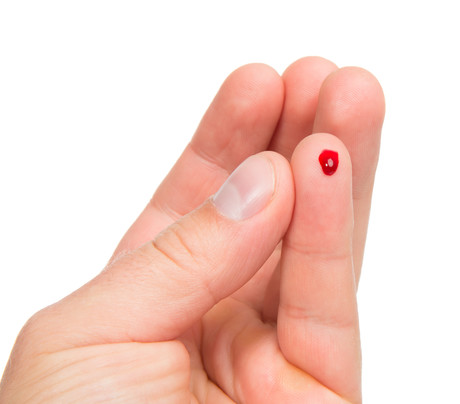New flu test: one drop of blood could save your life

A new blood test predicts which influenza patients will develop potentially deadly secondary infections, such as pneumonia.
The High-risk Influenza Screen Test (HIST) measures ‘an early warning signal’ released by the patient’s body into their blood to ‘kick start’ their immune system’s fight against the infection.
The test needs only a single drop of blood and a few hours to predict, with 91% accuracy, which influenza patients will develop potentially deadly secondary infections.
Previously doctors could only test for influenza infection but didn’t know which patients would be at risk of rapid deterioration.
Developed by Dr Benjamin Tang, a doctor from the Department of Intensive Care Medicine, Nepean Hospital and medical researcher at Westmead Institute for Medical Research, the test is a world first and identifies which influenza patients will need urgent, life-saving, medical treatment.
“Influenza can sometimes kill otherwise healthy people in the prime of their lives,” Dr Tang said.
“By using the High-risk Influenza Screen Test we’re eavesdropping on the immune system to pick up when the body first mounts a defence against a serious, life-threatening infection.
“The early warning means we have a greater chance to treat the patient’s infection before it overwhelms them and potentially kills them,” Dr Tang said.
The research, published by Dr Tang and colleagues in the European Respiratory Journal, deciphered the genetic codes that immune cells release to warn the body of a serious infection, such as pneumonia, caused by the influenza virus.
HIST will be particularly useful during pandemics when there is a delay in developing vaccines for strains of the influenza virus.
“We can now test people during a pandemic, or outbreak of a new flu virus, to identify those who might be at greater risk of developing serious complications.
“The test works with any flu infection as it looks at how the body reacts rather than the strain or type of virus.”
Dr Tang said HIST could also be used to track the effectiveness of new drugs in clinical trials by accurately plotting the patient’s immune response.
The patented HIST runs on equipment already available in most pathology laboratories.
The full research paper is available in the European Respiratory Journal.
GenesisCare expands with $35m Northern Beaches cancer centre
The relocated centre has expanded its services with a new radiation therapy offering and access...
In Conversation with Royal Women's Hospital CEO Sue Matthews
An hour after the final call for visitors to leave, Professor Sue Matthews — now CEO of...
Global prostate cancer rates predicted to double by 2040
The number of annual prostate cancer deaths worldwide is predicted to rise by 85% from 375,000 in...










